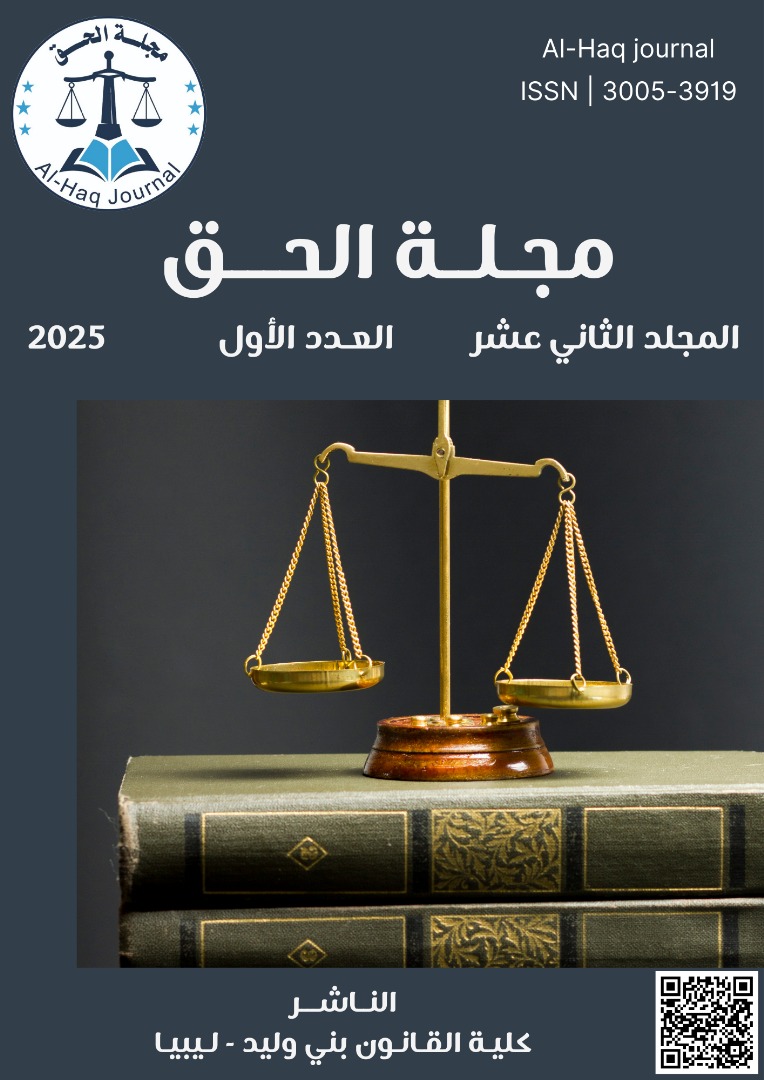Comment on the Supreme Court's ruling on the questioning of opponents in a civil suit
DOI:
https://doi.org/10.58916/alhaq.v12i1.293الكلمات المفتاحية:
lawsuit - investigation ، interrogation - opponents – defenseالملخص
Given the fundamental difference between civil and criminal lawsuits, this difference in their nature has entailed a difference in the means of proof in them. Perhaps the one who examines the texts of the Code of Civil Procedure will notice that the well-known jurisprudential rule that the civil lawsuit belongs to the parties.
The judge’s role in it is negative and does not hold up well in the face of some texts in which the legislator has opened the door wide before the judge of the civil suit in order to reach the truth sought by the litigants. Rather, he - that is, the legislator - has granted the judge of the civil suit in some cases the means of proof that are prohibited to the judge of the criminal suit.
Although the latter has been granted broad powers to investigate the case, among the means granted to the civil judge and not to the criminal judge is the interrogation stipulated under the Civil and Commercial Procedures Law.
التنزيلات
المراجع
Ahmed Nashat, Practical Explanation of the Law of Evidence in Civil and Commercial Matters, Dar Al-Nahda Al-Arabiya, Cairo, Egypt, Third Edition, 1984.
Ahmed Nashat, The Intermediary in Evidence in Civil and Commercial Matters, Dar Al-Nahda Al-Arabiya, Cairo, 2006 edition.
Hassian Reda, Research Published in the Journal of Algerian and Comparative Public Law, Issue 1, 1-6-2024, Volume 10.
Diablo Muhammad Najib (2024). The Judicial Council's Addressing of the Dispute in the Algerian Civil and Administrative Procedure Code. Al-Haqq Journal of Sharia and Legal Sciences, pp. 127-138.
Dr. Afia Saleh Masoud Al-Nukrat, & Ibrahim Al-Hussein Atiq Al-Hulaib (2022). Formalism in Civil Actions and the Penalty Arising from Violation Thereof. Al-Haq Journal of Sharia and Legal Sciences, pp. 116-144.
Abdel-Razzaq Al-Sanhouri, Al-Wasit fi Sharh Al-Qanun Al-Madani, Part Two, The Theory of Obligation, Dar Al-Nahda Al-Arabiya, Cairo, Egypt, First Edition, 1952.
A. Fatima Jama'a Idris Al-Bakoush. (2024). Corruption of Reasoning in Civil Rulings. Al-Haq Journal of Sharia and Legal Sciences, pp. 593-611. Electronic Links
https://juriscassation.cspj.ma/Decisions/RechercheDecisions.utm_source=chatgpt.com













